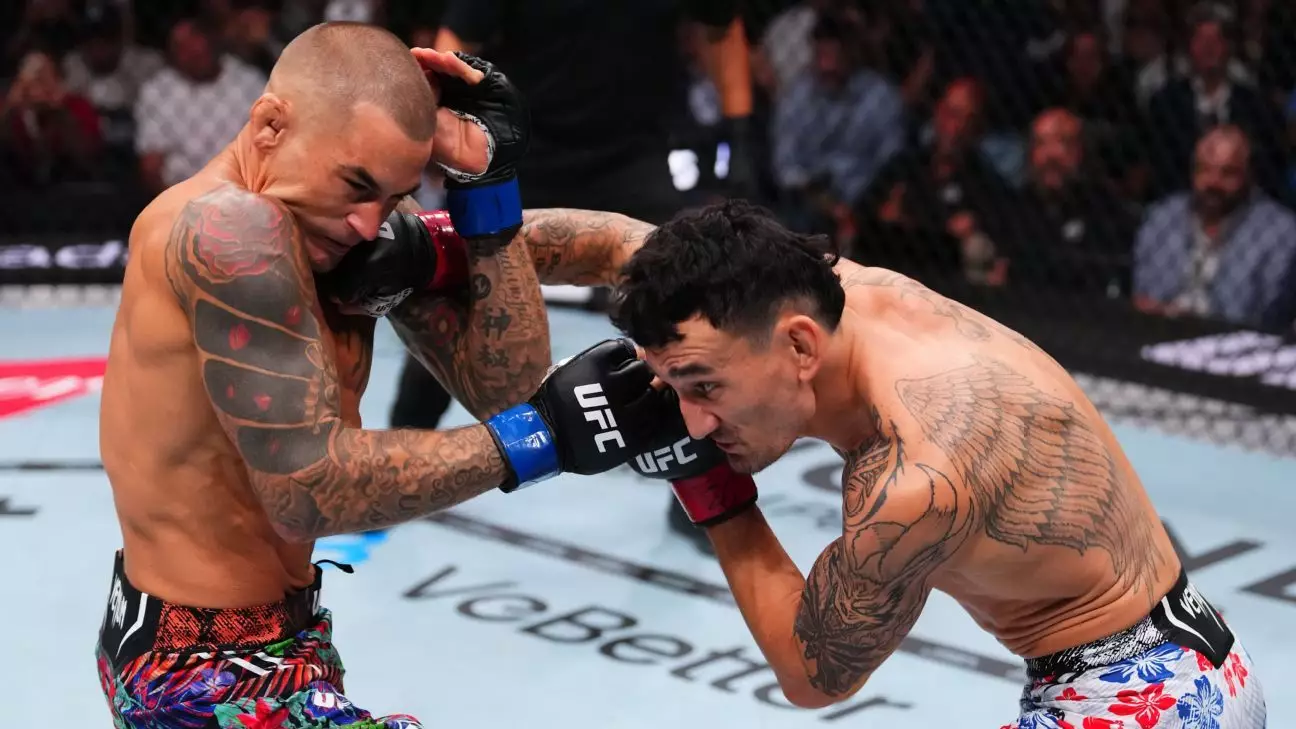Dustin Poirier’s final appearance in the UFC, despite ending in a loss, embodies a narrative of perseverance, grit, and the relentless pursuit of greatness. The bout against Max Holloway was more than just a typical fight; it was a culmination of 16 years of dedication, sacrifice, and passion. While the scoreboard reflected a unanimous decision in favor of Holloway, the true victory lies in Poirier’s unwavering spirit and his profound impact on the sport. His journey was marked by highs—title fights, knockout victories, and a resilient attitude—and lows, including heartbreaking losses and adversity both inside and outside the Octagon. Yet, Poirier’s resilience transformed every challenge into a testament to his character and fueled his legendary status.
The Power of Emotional Entrepreneurship
What sets Poirier apart isn’t merely his physical prowess but his extraordinary capacity to connect emotionally with fans and fighters alike. The fight week was a showcase of admiration and genuine respect that transcended mere competition. Poirier’s openness about feeling appreciated and seen signifies a rare humility in a sport often driven by egos. His ability to embrace this recognition indicates a maturity that elevates him beyond the traditional athlete. Poirier’s farewell is a masterclass in embracing the emotional aspects of sports, reminding us that success isn’t solely measured by wins but also by how deeply one touches others’ lives.
Legacy of Resilience and Hard-Hitting Determination
Throughout his career, Poirier exemplified resilience, consistently overcoming setbacks to reach new heights. Though he faced defeats against Nurmagomedov, Oliveira, and Makhachev, each stumble only fueled his determination. His trilogy with Holloway stands as a testament to his fighting spirit—an embodiment of persistence, ultimately winning the first two encounters before falling short in the trilogy. Poirier’s knockout record and his ability to inflict significant damage reflected his power and fearlessness. More importantly, his title runs, interim championships, and relentless fight style contributed to his reputation as a fighter who refused to quit, regardless of circumstances.
The Cultural and Personal Significance of a Homecoming
Joe Louis once said, “A champion is someone who gets up when he can’t.” Poirier, born in Lafayette, Louisiana, embodies this ethos, and his final walk to the Octagon was infused with hometown pride. Walked out by Lil Wayne to “A Milli,” a song that symbolizes resilience and pride, Poirier’s choice of entrance was a tribute to his roots and his journey from a young kid dreaming in Louisiana to a global MMA icon. The UFC’s decision to schedule his farewell match in New Orleans was an acknowledgment of his status as a local hero and a reminder of how community and identity fuel the fire within champions.
The End of an Era, Not the End of a Legacy
While Poirier’s journey at UFC 318 concluded with a loss, it heralds the beginning of his legacy’s next chapter. His accomplishments — 22 wins, 11 knockouts, and legendary battles — are etched into the sport’s history. His influence extends beyond his fighting skills; he’s a model of resilience and authenticity that aspiring fighters and fans will remember long after his gloves are hung up. Poirier’s career was characterized by an unyielding fight outside the cage as well—supporting causes, bonding with fans, and inspiring countless individuals with his genuine persona. His departure signifies the end of a competitive chapter but heralds the continuity of his influence, as he transitions from active competition to a role that will shape the future of mixed martial arts.
In celebrating Poirier’s career, we recognize not just the wins and losses, but the indomitable human spirit that defines true greatness. His story affirms that resilience, authenticity, and passion are the real victories in the game of life and sports—lessons that will resonate far beyond the confines of the Octagon.


Leave a Reply